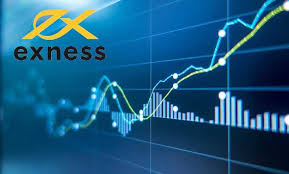
Understanding Competitive Exness Fees
In the ever-evolving landscape of online trading, the brokerage platform you choose can significantly impact your profitability. One of the critical factors to consider is the fees charged by the broker. In this article, we delve into the Competitive Exness Fees http://hakamtechsol.com/?p=5861, providing you with essential insights that can help you make informed trading decisions.
What are Exness Fees?
Exness is a well-known trading platform that caters to a diverse clientele, including forex traders, stock investors, and cryptocurrency enthusiasts. Understanding the fees associated with trading on Exness is crucial for both new and experienced traders. These fees can be manifested in various forms, including spreads, commissions, withdrawal charges, and overnight financing costs.
Types of Fees on Exness
There are several types of fees that traders might encounter when using Exness, which can vary based on the account type:
- Spreads: The spread is the difference between the bid and ask price of a currency pair. Exness offers competitive spreads, which can be as low as 0 pips on specific accounts, particularly during optimal market conditions.
- Commissions: Depending on the account type, Exness may charge a commission per trade. For instance, the Zero account has a commission model that is popular among high-frequency traders.
- Withdrawal Fees: While many withdrawal methods are free, some may incur charges, depending on the payment method and the region you are in.
- Drop in Pricing: It’s important to consider that traders should also pay attention to any drop in pricing that might occur due to market volatility, which can further influence trading costs.
- Overnight Fees: If you hold a position overnight, you may be subject to overnight financing costs, which can vary depending on the instrument traded.
Comparative Analysis of Exness Fees
To understand how Exness fares against its competitors, it’s essential to compare its fee structure with other popular brokers. A comparative analysis reveals that:

- Exness often offers lower spreads compared to many other brokers, especially on commodity trading.
- Commission rates are competitive and can be more transparent in Exness compared to some firms that have complicated fee structures.
- Withdrawal fees are minimal, which can save traders significant amounts in the long run.
Account Types and Associated Fees
Exness provides various account types, each designed to cater to different trading styles and needs:
- Standard Account: Aimed at beginners, this account type offers a user-friendly interface with commission-free trading and spreads starting from 0.3 pips.
- Zero Account: Designed for more experienced traders, the Zero account offers very tight spreads starting from 0 pips but incurs a small commission per trade.
- Pro Account: Aimed at professional traders, commissions are slightly higher but offer significant advantages for high-volume trading scenarios.
Factors Influencing Fees
Several factors can influence the fees charged by Exness, including:
- Market Conditions: High volatility can result in fluctuating spreads and fees.
- Account Type: Different account types cater to varying levels of investment and risk, which can impact the fees.
- Trading Volume: More active traders may enjoy tighter spreads depending on their trading patterns and history with Exness.
Final Thoughts on Competitive Exness Fees
Understanding the fee structure of Exness is vital for any trader looking to maximize their profits and minimize their costs. With competitive spreads, transparent commissions, and various account types, Exness presents itself as a sensible choice for both novice and experienced traders. Always remember to review and understand the fees associated with the services you are using, as these can significantly impact your overall trading experience.
In conclusion, Exness stands out as a competitive broker, especially when considering its fee structure compared to other brokers. By analyzing the different types of fees and their implications, traders can strategically navigate their trading activities to ensure maximum profitability while minimizing the costs.
![]()

